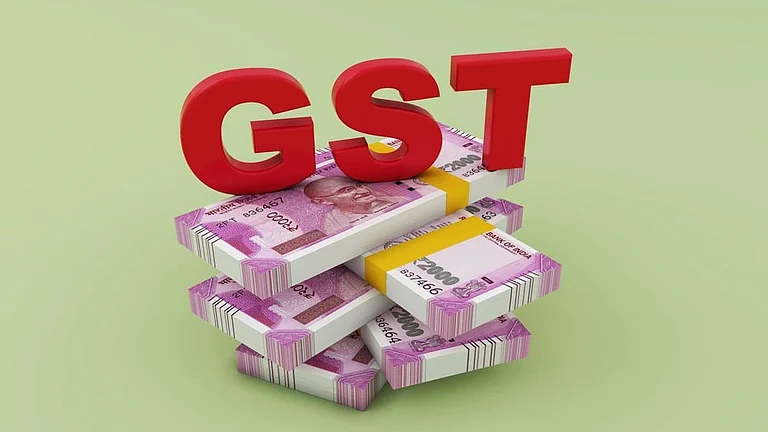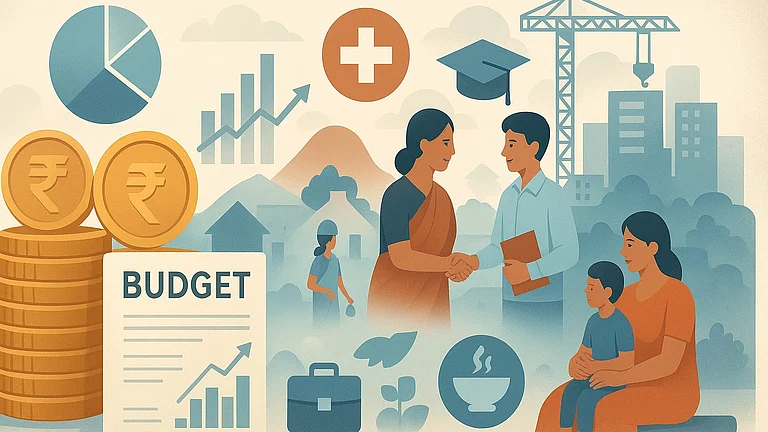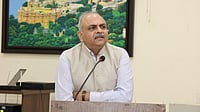The focus of the much-anticipated 53rd GST Council meeting on Saturday will lean more towards providing clarification over trade and industry-related issues rather than taking up pending agendas of rate rationalisation and bringing fuel and petrol under the net, according to tax experts.
As the first meeting after the newly formed National Democratic Alliance (NDA) government assumed office this month, it also holds significance for being held after a gap of nearly eight months. However, sources say that the council is still not equipped with enough inputs to take any major decision like cutting down the slabs. “Restructuring of slabs would require more technical work to be done,” says a person familiar with the development, on conditions of anonymity. Notably, the process got slowed after the committee reviewing it got discontinued.
At present, India has four primary goods and services tax or GST slabs: 5 per cent, 12 per cent, 18 per cent, and 28 per cent, besides special rates for certain items like gold and precious stones. The agenda, since GST’s introduction in 2017, has been to simplify this structure by potentially reducing the number of slabs and including exemptions to the net, to boost overall tax revenue of the government.
According to economists, the government is generating less revenue compared to the pre-GST regime and restructuring is a must. “Focus must be on revenues, net of refunds, not on headline collections. Despite recovery from the pandemic and better implementation, GST revenue for FY24 at 6.1 per cent of GDP (gross domestic product) has still (after seven years) not surpassed pre-GST level,” former chief economic advisor to the government of India Arvind Subramanian said in a post on X (formerly Twitter) following record GST collections of Rs 2.1 lakh crore for April.
Subramanian pointed out that GST revenue before 2017 recorded at 6.2 per cent of the GDP. Also, the average of the products that are part of GST is less than 11.5 per cent, which as per him, was supposed to be 17 per cent. This makes the matter crucial for the new government.
While there may be some discussion on the matter, a significant decision is improbable due to technical inefficiencies. What else seems less probable is a call on the exemptions. “The long pending issue of bringing fuel including petrol and diesel under the ambit of GST is not likely to be discussed at the upcoming meeting,” says Manmeet Kaur, partner at Karanjawala & Co.
Experts are of view that the political nature of these matters has also delayed any calls on them and the upcoming meet will be no different. “While the inclusion may not form part of the current meeting, any decision in this regard will substantially affect the states as well,” says Jitendra Motwani, partner at Economic Laws Practice. After the GST reform was introduced, excluded items like petrol has remained as one of the few local sources of revenue for the state governments.
In such case, experts believe the council could use the stage to address several concerns for various sectors. “With GST collections stabilising and the flexibility to make changes outside the Union Budget, the council has an ideal opportunity to address industry concerns effectively,” says Mahesh Jaising, partner at Deloitte India.
One such concern is of the online gaming industry, facing tax liability of around Rs 2 lakh crore. The council last year had amended GST laws to include online gaming, casinos, and horse racing as taxable actionable claims. As a result, these activities would attract 28 per cent tax on the full face value of bets. The implementation is yet to be reviewed, with the matter to be addressed by the Supreme Court in July.
“There is a need to address key industry issues like the taxation of online gaming and the promised review of the valuation rules introduced in October 2023,” says Rajat Bose, partner at Shardul Amarchand Mangaldas & Co.
Others who await clarifications are foreign airline and shipping-line companies, facing tax notices over allegations of GST evasion on imports of services from the parent office. A representation is already made by these companies and they would expect a response by way of appropriate recommendations by the council. In the same queue is also the insurance sector, as they eagerly await clarification regarding the issue of levy of GST on re-insurance premiums.
“The industry is waiting with bated breath for the GST council meeting, which hopefully will give them clarity on various GST issues,” says Motwani.
































